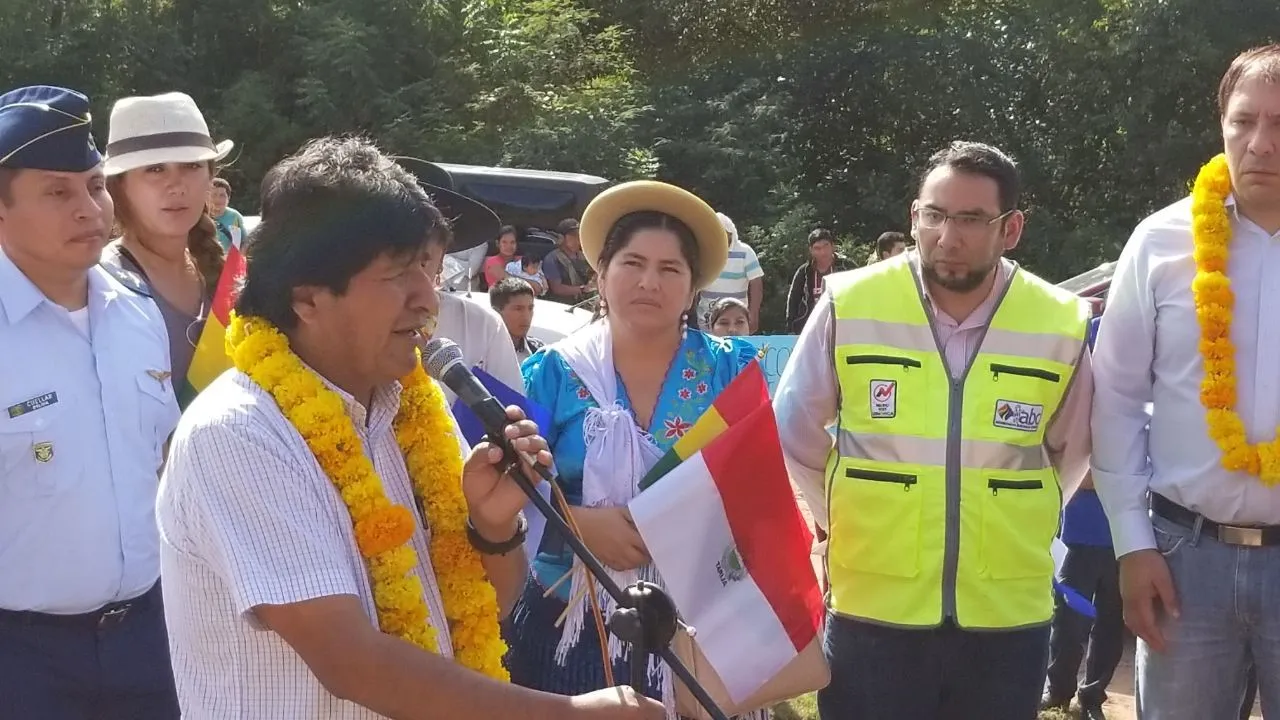At the recent PIARC World Road Conference in Mexico City the country’s president, Felipe Calderon, made a keynote opening address. Calderon emphasised that infrastructure investment and expansion forms a crucial component in the country’s future economy and as such, has been a priority for his administration.
Calderon took office in 2006 and by the end of this year Mexico will have built or rebuilt some 19,000km of roads and highways in the country. Due to its proximity to the US, Mexico is highly dependen
February 27, 2012
Read time: 3 mins

At the recent 3141 PIARC World Road Conference in Mexico City the country’s president, Felipe Calderon, made a keynote opening address. Calderon emphasised that infrastructure investment and expansion forms a crucial component in the country’s future economy and as such, has been a priority for his administration.
Calderon took office in 2006 and by the end of this year Mexico will have built or rebuilt some 19,000km of roads and highways in the country.
Due to its proximity to the US, Mexico is highly dependent on trade with the economic giant over the border. The recession that has affected the US has also had a huge impact on Mexico, with its 110 million population and 2,000,000km2 area. But Calderon’s policy of developing roads is aimed at revitalising the country’s economy. Faster, safer highways will reduce journey times and cut transportation costs, while boosting trade with the US that is so vital to Mexico. Calderon also pointed out that this policy of building roads has given construction jobs to many at a time when unemployment is high. Limited federal funds have required the use of a combination of public and private financing to develop the new network of tolled highways that are now crossing the country, north to south and east to west. At the same time, a new ring road is being built around the sprawling and heavily congested capital Mexico City that will reduce through traffic and lower vehicle densities. With a growing population estimated at somewhere between 21-23 million, Mexico City has a desperate need for additional infrastructure.
Some of Mexico’s highways are true landmark projects too. The new highway through the Sierra Madre Mountain range features a string of tunnels and innovative engineering solutions to cope with challenging terrain, most notably the construction of the Baluarte Bridge spanning the Baluarte River more than 400m below.
President Calderon has not discovered some radical economic policy to set his country back on track however. He is instead following a proven path of investing in infrastructure established long before and used for example by US president Roosevelt in the 1930s to help lift the country from the Great Depression. Elsewhere in Latin America other nations such as Chile, Colombia and Peru are building road networks. Landlocked Bolivia is benefiting from new roads that are part funded by neighbouring Brazil, itself in the midst of the continent’s largest highway expansion programme.
What these Latin American nations can show North America and Europe is an appreciation of the need for good infrastructure. Road building projects in North America and Europe are still required, while the maintenance backlog is immense. And yet complacency by public and politicians alike in Europe and North America blindly ignore the enormous and growing need for investment to rebuild bridges and upgrade highways that are past their design life.
Calderon took office in 2006 and by the end of this year Mexico will have built or rebuilt some 19,000km of roads and highways in the country.
Due to its proximity to the US, Mexico is highly dependent on trade with the economic giant over the border. The recession that has affected the US has also had a huge impact on Mexico, with its 110 million population and 2,000,000km2 area. But Calderon’s policy of developing roads is aimed at revitalising the country’s economy. Faster, safer highways will reduce journey times and cut transportation costs, while boosting trade with the US that is so vital to Mexico. Calderon also pointed out that this policy of building roads has given construction jobs to many at a time when unemployment is high. Limited federal funds have required the use of a combination of public and private financing to develop the new network of tolled highways that are now crossing the country, north to south and east to west. At the same time, a new ring road is being built around the sprawling and heavily congested capital Mexico City that will reduce through traffic and lower vehicle densities. With a growing population estimated at somewhere between 21-23 million, Mexico City has a desperate need for additional infrastructure.
Some of Mexico’s highways are true landmark projects too. The new highway through the Sierra Madre Mountain range features a string of tunnels and innovative engineering solutions to cope with challenging terrain, most notably the construction of the Baluarte Bridge spanning the Baluarte River more than 400m below.
President Calderon has not discovered some radical economic policy to set his country back on track however. He is instead following a proven path of investing in infrastructure established long before and used for example by US president Roosevelt in the 1930s to help lift the country from the Great Depression. Elsewhere in Latin America other nations such as Chile, Colombia and Peru are building road networks. Landlocked Bolivia is benefiting from new roads that are part funded by neighbouring Brazil, itself in the midst of the continent’s largest highway expansion programme.
What these Latin American nations can show North America and Europe is an appreciation of the need for good infrastructure. Road building projects in North America and Europe are still required, while the maintenance backlog is immense. And yet complacency by public and politicians alike in Europe and North America blindly ignore the enormous and growing need for investment to rebuild bridges and upgrade highways that are past their design life.







